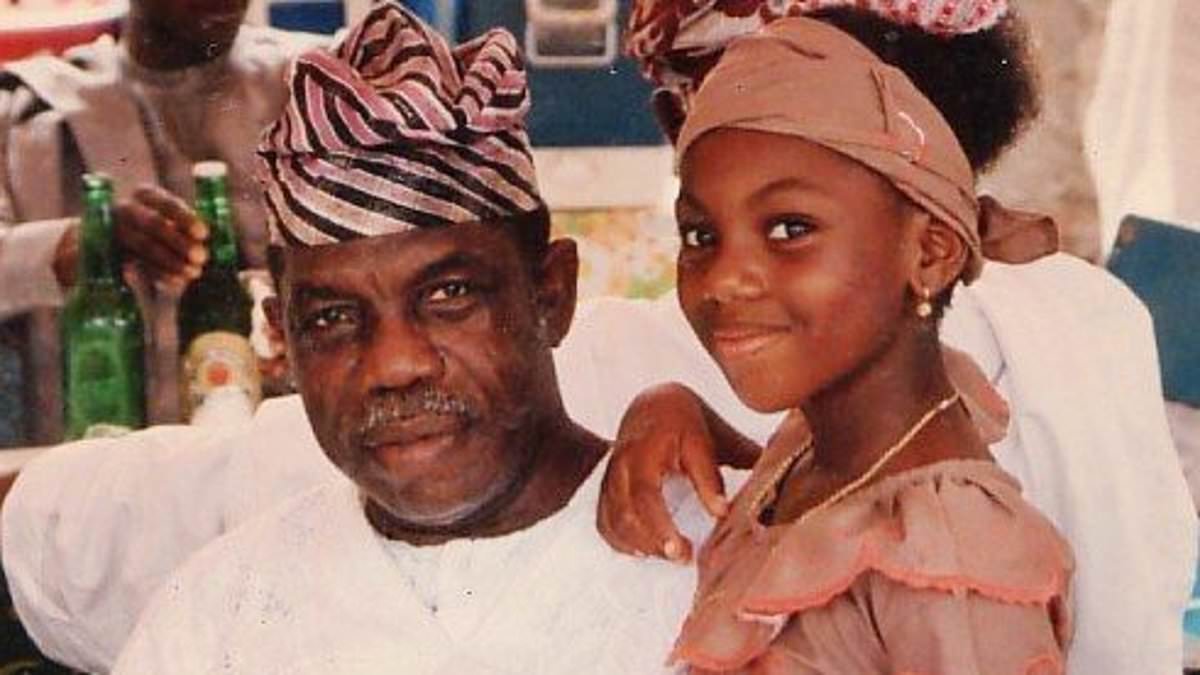Most Tory MPs privately admit electing Kemi Badenoch is a risk – even those who openly backed her. They know about her reputation for starting fights in empty rooms and her ‘direct’ approach to social interactions, which is often confused with arrogance and rudeness.
But they also see her qualities: frank, fearless and settled in her belief system in a way which reminds many of Margaret Thatcher.
That, in the end, is what gave her the advantage over her opponent, Robert Jenrick, when the vote went to the party grassroots.
Mr Jenrick ran the best campaign, but ultimately could not shake his reputation for being ‘Robert Generic’, an identikit white, besuited Tory male. Like Rishi Sunak, his rags-to-riches story was one in which the later riches – he is a lawyer married to an older and even more successful lawyer – obscured the rags.
Mrs Badenoch was born in a private Catholic maternity hospital in Wimbledon, and grew up in Nigeria where her father was a GP and her mother a lecturer in physiology. Her British passport gave her a route out of the country when its economy collapsed in the 1990s: her parents sent her aged 16 to live with a family friend in Morden, south London, where she enrolled at a local college for her A-levels.
During the leadership contest she said that this was the period in which she ‘became working class’ – having been born into a middle-class family – by taking a job in McDonald’s. She said: ‘There’s a humility there… you had to wash toilets, you had to flip burgers, you had to handle money.’
Mrs Badenoch, who spoke English as a second language after Yoruba and calls herself ‘a first-generation immigrant’, says her time studying computer engineering at Sussex University drove her towards Tory politics.
Surrounded by Left-wing students she describes as ‘snotty middle-class north Londoners who couldn’t get into Oxbridge’, she says that she was appalled by the ‘high-minded’ way they spoke about Africa.
She said: ‘These stupid lefty white kids didn’t know what they were talking about. That instinctively made me think ‘these are not my people’.’
After spells as a software engineer and an associate director at Coutts bank, her breakthrough came when she was made a digital director at The Spectator magazine. There she was championed by the then-editor Fraser Nelson and fell under the sway of Michael Gove – who has just supplanted Mr Nelson in the editor’s chair.
Both Mr Gove and his friend Dougie Smith, the shadowy Tory fixer, had soon identified Mrs Badenoch as a future party leader, and encouraged her to adopt the anti-woke beliefs which have so resonated with Conservative members.
She entered Parliament in 2017 in the safe Tory seat of Saffron Walden, aligning herself immediately with the Brexiteer wing of the party as Theresa May endured her endless battle with the EU to secure a deal: in her maiden speech, she described the leave vote as ‘the greatest ever vote of confidence in the project of the United Kingdom’, and won a powerful place on the executive of the Tory backbench 1922 Committee.
She was given her first government role, as junior minister for children and families, by Boris Johnson when he became prime minister in 2019.
Her time as equalities minister gave her the platform to attack identity politics, clashing with civil servants over her insistence public buildings should have separate men’s and women’s toilet facilities and complaining about the way her three mixed race children with her banker husband, Hamish Badenoch, are regarded solely as black. She also created headlines with her outspoken defence of the controversial Sewell report, commissioned in the wake of the Black Lives Matter protests, which found the UK was not institutionally racist.
She lost to Liz Truss in the contest to succeed Mr Johnson as leader, but entered the Cabinet as international trade secretary – a post she retained under Mr Sunak.
Mrs Badenoch embraces her reputation for being confrontational, saying last week: ‘I am somebody who is very blunt. I’m very forthright and I’m very confident as well. I’m not a wallflower.’
When Doctor Who actor David Tennant told an awards ceremony he would like to wake up in a world where she ‘doesn’t exist any more’ and wished she would ‘shut up’, Mrs Badenoch said she would not be silenced by a ‘rich, lefty, white male celebrity’ attacking ‘the only black woman in government’.
Yesterday, Mr Johnson gave his instant, powerful backing to her leadership by saying that she would bring ‘a much needed zing and zap to the Conservative party’.
But she also brings gaffes – which is why she is a risk. In the space of a few days at the Tory Party Conference in Birmingham, during the early stages of the contest, she managed to declare that maternity pay was ‘excessive’ and said some civil servants were so bad that 10 per cent of them should be in prison.
Tory members have calculated that the risks of electing her are outweighed by the rewards: her ability to neutralise the appeal of Nigel Farage’s Reform UK and to slot away the open goals which are being presented by Sir Keir Starmer’s fumbling administration.
